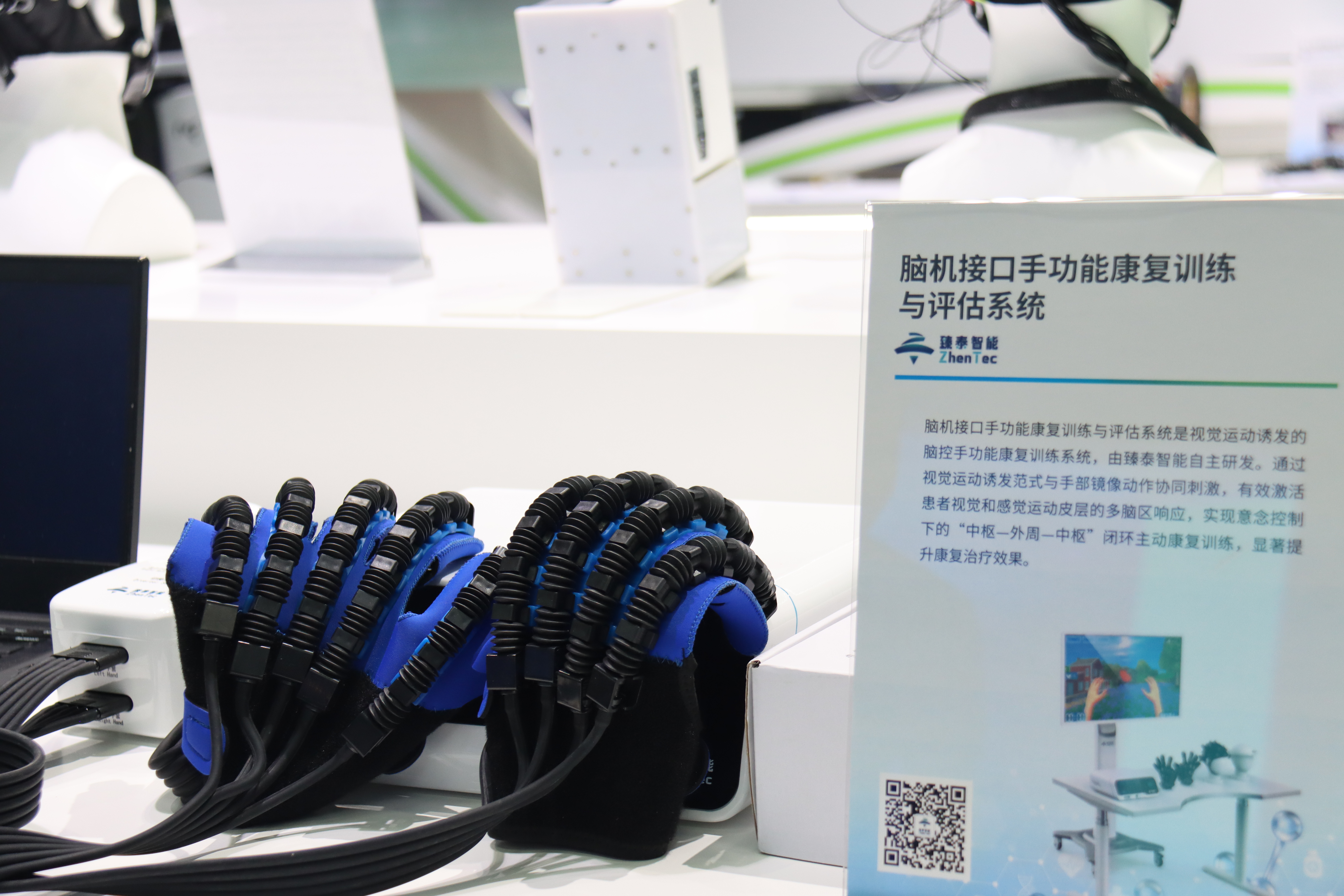post-stroke hand rehabilitation now possible

the bcis system which can conduct rehabilitation training for stroke survivors' hands.
(photo: tang zhexiao/ s&t daily)
by tang zhexiao
a stroke happens when the blood supply to part of the brain is cut off, which can cause permanent damage, including partial paralysis and impairment in speech, comprehension and memory, according to the world stroke organization.
to assist stroke survivors, a brain-computer interfaces (bcis) system developed by zhentec technology, proved that it can trigger neurological recovery and hence hand motor function, bringing hope to patients with neurological dysfunction such as stroke, gradual freezing and spinal cord injury.
the bcis system, which combines mind control and closed-loop stimulation, has a significant effect on improving hand motor function.
when the patient stimulates the relevant brain motor cortex through motor imagination, the bcis device will processes collected eeg signals, transmit them back to the patient, and combine external stimuli to act on the neuromuscular system at the same time.
through such repetitive training to regulate brain signals and affect cortical activity, the patient can effectively exercise brain nerves, improve their hand function and connectivity.
additionally, the system can record eeg signal training data, automatically generate analysis reports, and track and evaluate the rehabilitation effect over a period of time.
